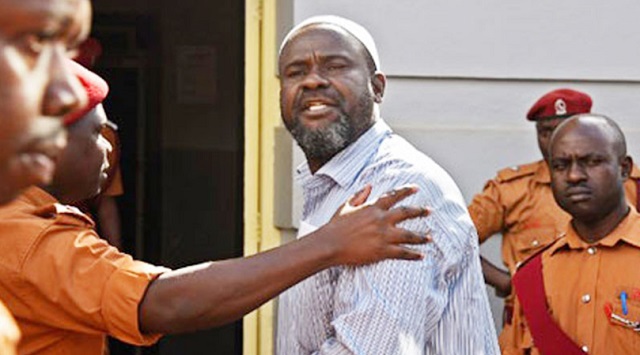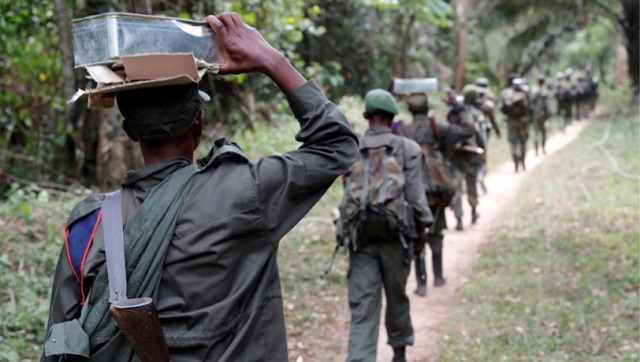
Radicalisation phase
In the subsequent years the Allied Democratic Forces grew in a more Islamist direction. A number of factors contributed to this. The first was that its Uganda liberation component had slowly weakened as soldiers and officers left the organisation. Seven top leaders of the old National Army for The Liberation of Uganda also surrendered under a UN disarmament programme.
Secondly, the organisation seems to have increasingly used religious networks to harness funds in the Congo and Uganda. Religious rhetoric grew more important and indoctrination became a vital component in its training camps.
However, compared with other African jihadist outfits such as Boko Haram and the al-Shabaab, the group lacked the ideological focus, religious sophistication and wide distribution.
Recent developments
At the start of 2018 Allied Democratic Forces were dealt severe blows from a Congolese government offensive. Many local respondents predicted its end.
Rumours of Allied Democratic Forces factions “for hire” in local conflicts surfaced, with local low level sub-commanders appearing on different sides in the complex conflicts in Kivu.
Over the past two years there have also been regular rumours of tension within the organisation.
But in late 2018 Allied Democratic Forces again attacked villages in Kivu, and Mozambican media even reported about potential offshoots in Mozambique.
In 2018, the Ugandan security services also accused the group of being behind killings of sheikhs in Kampala.
It’s hard to determine if violence in the region is being committed by the Allied Democratic Forces, or other militias. It’s also hard to determine the exact borders of the organisation. And it’s hard to say if the new Islamic State affiliate in Congo is a breakaway organisation of the Allied Democratic Forces.
But, given it’s history, it’s safe to say that the Allied Democratic Forces has vital experience in surviving hardship and pressure, and that it’s aided by regional rivalries and local tension.

****
Stig Jarle Hansen is Associate Professor of International Relations, Norwegian University of Life Sciences
Source: theconversation
 The Independent Uganda: You get the Truth we Pay the Price
The Independent Uganda: You get the Truth we Pay the Price


